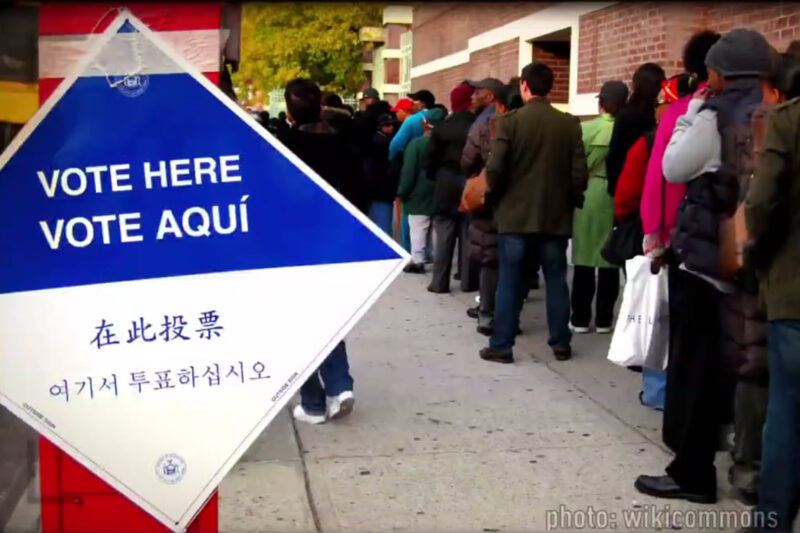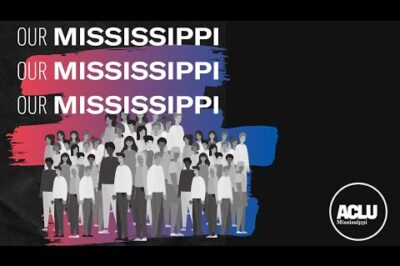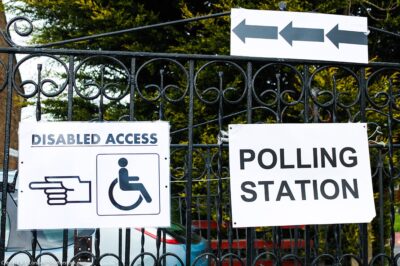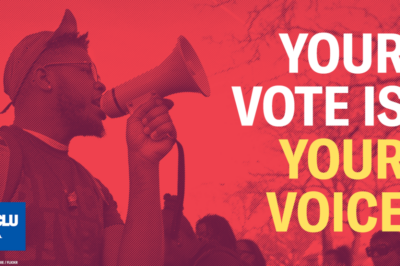The ACLU Is on the Ground in Five States Protecting Americans’ Right to Vote This Election Day


Tomorrow the U.S. will hold the first presidential election since 1965 without the full protection of the Voting Rights Act.
Since 2008, states across the country have passed measures to make it harder for Americans — particularly African-Americans, the elderly, students, and people with disabilities — to exercise their fundamental right to vote and have their vote counted. States have cut early voting, enacted voter ID laws, purged voter rolls, and made it more difficult for qualified voters to register. Many of these changes took place in 2013 in the wake of the Supreme Court’s decision in Shelby County, which allowed states to pass election laws without preclearance from the federal government.
As the ACLU continues to litigate these suppressive measures in the courts, we also provide direct nonpartisan assistance to voters during the election. The ACLU’s Voting Rights Project will be on the ground on Election Day in five key states to protect voters’ right to vote and have their vote counted free from interference, intimidation, or discrimination.
Florida: The ACLU will be on the ground in Florida — which has 29 electoral votes and its share of Election Day issues. We will be working with partners across the state to monitor polling places and ensure that election administration issues are addressed on the spot. The ACLU recently intervened in a lawsuit seeking to extend the voter registration period on account of Hurricane Matthew, which allowed 102,996 Floridians to submit voter registration applications during the five-day extension.
Wisconsin: After years of litigation, a federal court determined that Wisconsin voters must be given a free voter ID card at the DMV that they can then use as identification at the polls. The ACLU will ensure that voters who do not have qualifying ID can cast provisional ballots and seek to obtain ID immediately thereafter to have their vote counted.
Ohio: The ACLU will be in Cleveland ensuring proper access to the polls in poor neighborhoods and monitoring complaints of voter intimidation.
Pennsylvania: The ACLU will be on the ground in Philadelphia observing polling places and ensuring that communities are protected from hostility or intimidation.
North Carolina: Despite a court decision holding that North Carolina had intentionally discriminated against African American voters, the state curtailed early voting by severely limiting the number of polling places available during the first week of the early voting period. The ACLU and its partners will be on the ground to monitor the polls on Election Day.
Wyoming: Following press reports that naturalized citizens may be asked to provide documentary proof of citizenship at the polls — a discriminatory policy not required of native-born citizens — the ACLU sent a demand letter to the Wyoming secretary of state explaining why the policy is unconstitutional. We will be monitoring the election and would like to hear from Wyoming voters who are affected by this unconstitutional policy.
As always, ACLU affiliates will be engaged in every state on Election Day.
False claims of a “rigged” election directly threaten the democratic process and undermine confidence in its administration and outcome. These claims belittle the real challenges of voter suppression American voters have faced at the polls in recent years. The ACLU has litigated cases in North Carolina, Wisconsin, Ohio, and Kansas since 2013. In not one could the state produce evidence of the “fraud” that they claim justified their suppressive measures. For example, the Fourth Circuit Court of Appeals noted that despite three years of litigation, North Carolina had failed to identify even a single individual charged with committing in-person voter fraud.
The real problem is voter suppression. States’ suppressive laws directed at our most vulnerable citizens are, as the Fourth Circuit put it, “solutions in search of a problem.”
If you need assistance on Election Day nationwide, call:
866-OUR-VOTE (687-8682) (English)
888-VE-Y-VOTA (839-8682) (Spanish)
888-API-VOTE (274-8683) (Cantonese, Korean, Mandarin, Thai, and Vietnamese)




